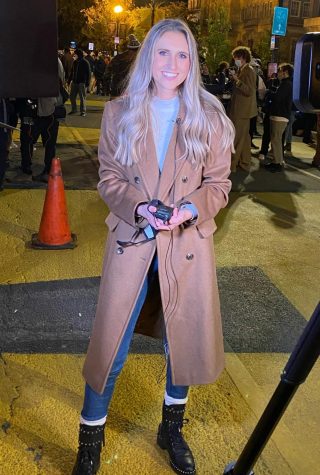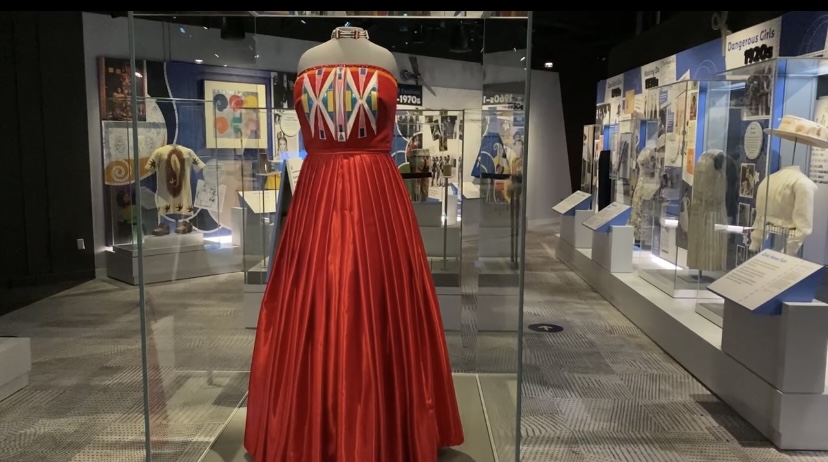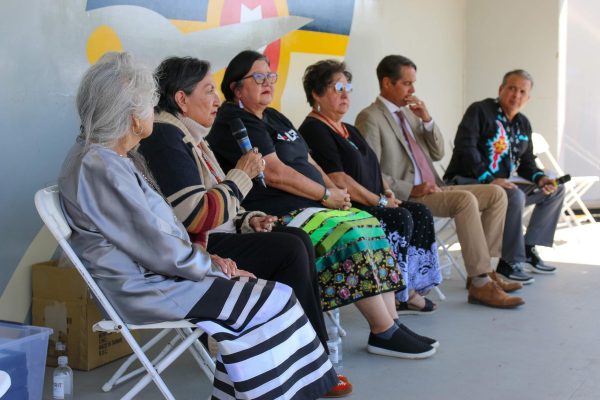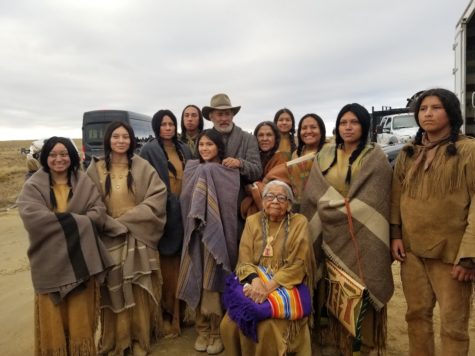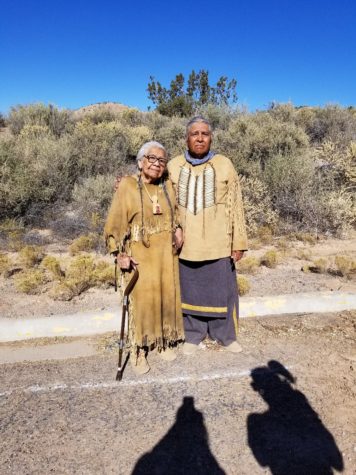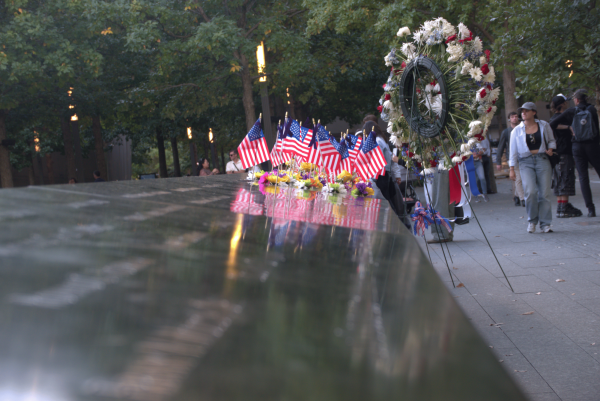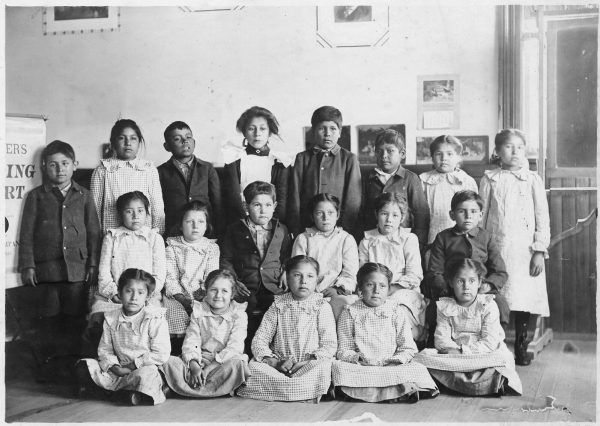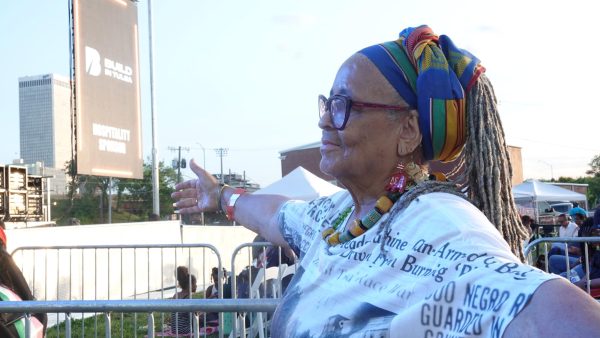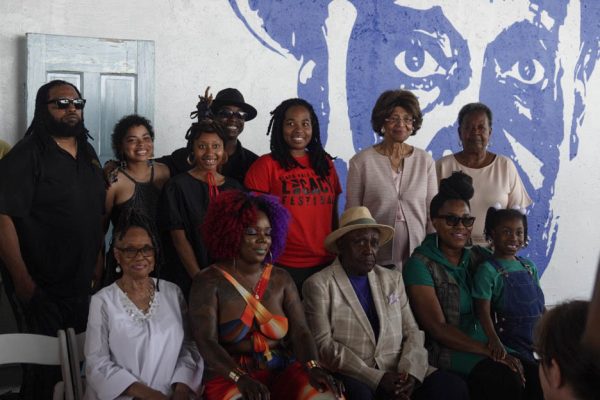Native Oklahoma Woman’s Prom Dress on Exhibit in Smithsonian
Isabella Aiukli Cornell’s 2018 prom dress on display in Smithsonian Girlhood exhibit. (Gaylord News/Emma Sears)
WASHINGTON — It’s one of the most important events in a teenager’s life, high school prom.
For Isabella Aiukli Cornell, her Junior prom in 2018 was about more than just wearing a stylish gown to a high school gymnasium. It was an opportunity to call attention to what has been described as an epidemic of murder and abuse faced by Native American women.
“We have a really high rate of women who go missing every year and there’s not a lot of media coverage about it,” said Cornell. “I wanted to make a statement about the ongoing crisis going on in our communities.”
Government statistics are sobering. According to the Centers for Disease Control, Native women are murdered at a rate 10 times higher than other ethnicities. Figures of the National Institute of Justice suggests that 84 percent of Native women have experienced violence in their lifetime.
For her prom in 2018, Cornell, of Oklahoma City and a member of the Choctaw Nation, chose a custom-made dress made by Crow designer Della Bighair-Stump of Hardin, Montana. The purpose was to bring attention to the peril faced by Indigenous women.
“The color red is symbolic of the Missing and Murdered Indigenous Women’s movement,” said Cornell. “The bodice was made to incorporate a little bit of the (Choctaw) tribe by adding diamonds to the design.”
Red is the official color of the Missing and Murdered Indigenous Women’s movement to symbolize a bold statement, indigenous women’s issues will be seen and heard.
Aside from being a statement color, multiple native tribes also believe that red is the only color that spirits can see. The project believes that the color not only will help to bring awareness to the cause but also help guide back the spirits of the murdered women and children so that they can lay them to rest.
The prom dress choice ended up making national headlines and was featured in magazines across the country.
The popular magazine Teen Vogue in an article about Cornell’s dress wrote: “Native dresses, like the ones designed by Della, are highlighting the unique way young Native people are incorporating their traditional heritage into contemporary spaces as a way to show off their ancestral pride.”
“I am just super honored and very happy that my dress will be getting a lot of coverage,” said Cornell. “A lot of times the only people talking about MMIW are Native people.”
A year after the magazines were sold, Cornell and her mother were contacted by the Smithsonian National Museum of American History about including the gown in a new exhibit called, Girlhood.
The Girlhood exhibit was created to commemorate the 100th anniversary of women’s suffrage by showcasing how women have changed history in five areas: politics, education, work, health and fashion.
Cornell’s dress sits in the center of the fashion section on display. From there, it will tour the country through the Smithsonian Institution Traveling Exhibition Service from 2023 through 2025.
“While I am a little bit sad that I don’t get to have it in my physical possession anymore. I’m more happy that a lot of other people will be able to learn something from it and for more awareness to be spread because that’s the whole mission behind it.”
The student of Fort Lewis College, a former Indian boarding school turned public college, never expected to find her prom dress in the center of a Smithsonian museum exhibit, but says that it gave her a chance to educate others on the struggles that Indigenous women face.
“By having it in the museum, that means that a lot of other people will be able to see it and understand what’s going on and that’s really just the whole goal behind all of this.”
Gaylord News is a Washington-based reporting project of the University of Oklahoma Gaylord College of Journalism and Mass Communication.
